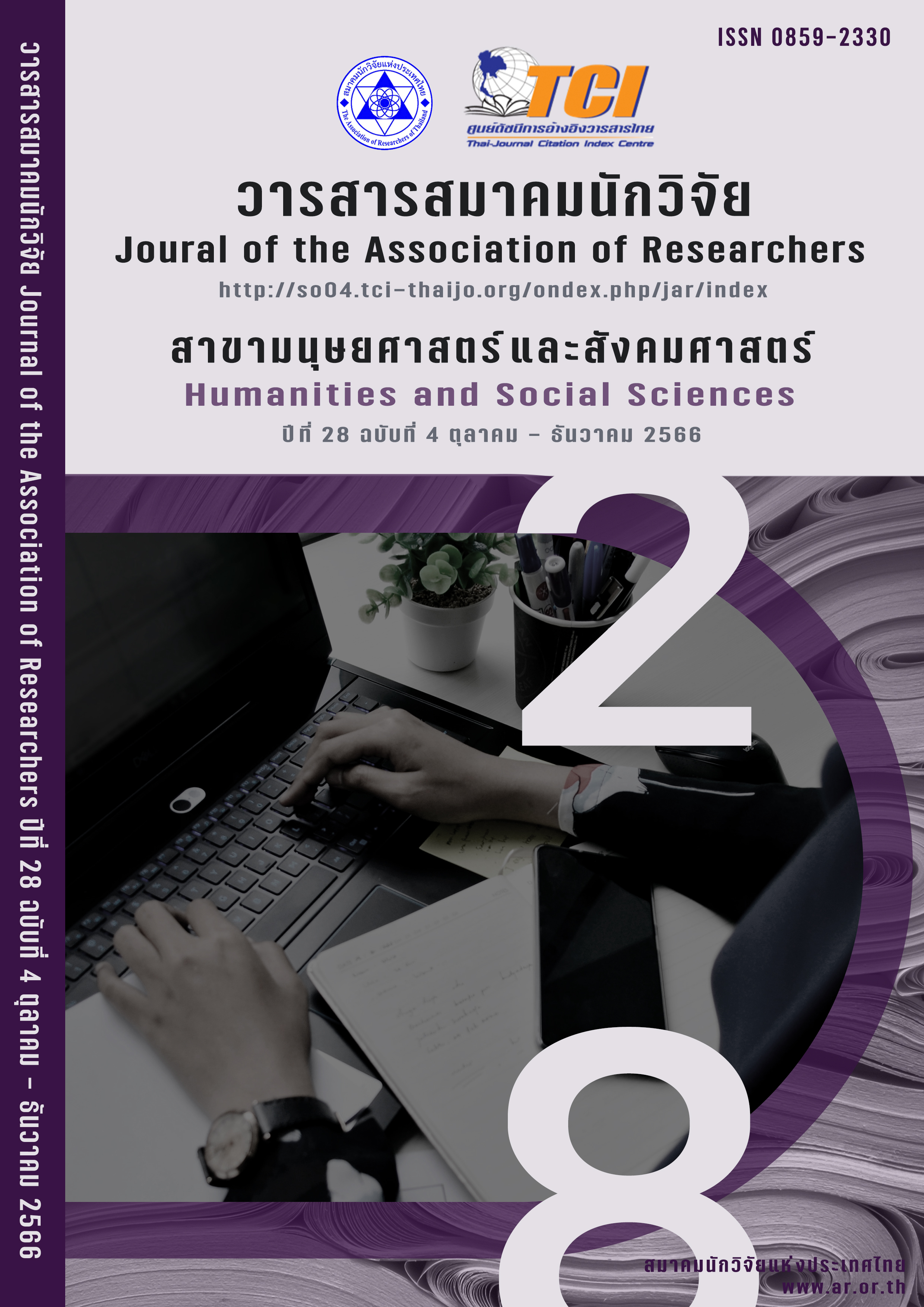Study of accounting preparation and use of accounting information. of social enterprise
Main Article Content
Abstract
Accounting data was important and necessary for the operation of the business. It served as a tool to support executives in planning and controlling business operations effectively. However, some small enterprises, including social enterprises, might not maintain comprehensive accounting in line with accounting standards. The aim of this research was to investigate bookkeeping and the use of accounting information within social enterprises, including recommendations. The data were collected 12 samples from executives, managers of Pracharath Rak Samakkee Social Enterprise, social enterprises, and academics related to social enterprises by interviewing, focus group, and secondary data. Reliability was checked using triangulation techniques and content analysis techniques to analyze the data.
The result revealed that some social enterprises were not recording transactions, preparing financial report but did not provide financial report analysis, incorrect accounting recording, bookkeeper did not have accounting qualifications, shortage of equipment and accounting information technology, executives did not give important to bookkeeping and did not understand accounting system. For recommendations, social enterprises must recruit bookkeepers with accounting qualifications, design accounting systems and complete all functions, and provide an accounting information system to facilitate tasks.
Article Details

This work is licensed under a Creative Commons Attribution-NonCommercial-NoDerivatives 4.0 International License.
บทความที่ปรากฏในวารสารนี้ เป็นความรับผิดชอบของผู้เขียน ซึ่งสมาคมนักวิจัยไม่จำเป็นต้องเห็นด้วยเสมอไป การนำเสนอผลงานวิจัยและบทความในวารสารนี้ไปเผยแพร่สามารถกระทำได้ โดยระบุแหล่งอ้างอิงจาก "วารสารสมาคมนักวิจัย"
References
กรมพัฒนาธุรกิจการค้า. (2543). พระราชบัญญัติการบัญชี พ.ศ.2543. สืบค้นเมื่อ 10 มีนาคม
, จาก www.dbd.go.th/download/PDF_law/acc_prb2543.pdf
กัลยา ปรีชา. (2559). หลักการบัญชี (พิมพ์ครั้งที่ 3). กรุงเทพฯ: ทริปเพิ้ล เอ็ดดูเคชั่น.
ชาญชัย มะโนธรรม. (2558). ศึกษาการจัดทำบัญชีของวิสาหกิจชุมชนในจังหวีดเชียงใหม่ตาม
แนวทางกรมตรวจสอบบัญชีสหกรณ์. วารสารมหาวิทยาลัยพายัพ. 25(1), 133 - 148.
ณัฐชานนท์ โกมุทพุฒิพงศ์และธัญลักษณ์ วิจิตรสาระวงศ์. (2559). การบัญชีขั้นต้น (พิมพ์ครั้งที่ 3).
กรุงเทพฯ: สำนักพิมพ์จุฬาลงกรณ์มหาวิทยาลัย.
ดุษณีย์ ส่องเมือง. (2560). การออกแบบระบบบัญชี (พิมพ์ครั้งที่ 8). กรุงเทพฯ: สำนักพิมพ์เสมา
ธรรม.
เบญจมาศ อภิสิทธิ์ภิญโญ. (2545). การบัญชี 1 (พิมพ์ครั้งที่ 1). กรุงเทพฯ: บริษัท ซีเอ็ดยูเคชั่น
จํากัด (มหาชน).
บังอร สวัสดิ์สุข นิติธร วงค์เชษฐาและชัย วิศรีชัย. (2565). การจัดทำและการใช้ข้อมูลทางการบัญชี
เพื่อวัดผลการดำเนินงานของธุรกิจ SMEs ในจังหวัดพะเยา. วารสารวิทยาการจัดการ
มหาวิทยาลัยราชภัฎเชียงราย. 17(1), 97-128.
แพรวา สาธุธรรม. (2565). SE: Social Enterprise เทรนด์ใหม่แห่งศตวรรษที่ 21 คืออะไร?
ค้นเมื่อ 5 มกราคม 2566, จาก https://sgs.tu.ac.th/news/what-is-social-enterprise/
มยุรี บุตรโต. (2553). การจัดทำบัญชีธุรกิจชุมชนในจังหวัดอุทัยธานี. งานวิจัยคณะวิทยาการจัดการ
มหาวิทยาลัยราชภัฎนครสวรรค์.
รัญชิดา สังขดวง. (2556). ศึกษาการจัดทำบัญชีและการใช้สารสนเทศทางการบัญชีของสถาน
ประกอบการนิติบุคคลประเภทห้างหุ้นส่วนจำกัดในจังหวัดปัตตานี. วารสารวิชาการ
มนุษยศาสตร์และสังคมศาสตร์. 9(1), 57-71.
วันชัย ประเสริฐศรี. (2561). การบัญชีเพื่อการจัดการ (พิมพ์ครั้งที่ 8). กรุงเทพฯ: บริษัทวิน-วิน
ดิจิตอลพริ้นติ้ง จำกัด
ศิริรัตน์ เจนศิริศักดิ์และภัทราจิต แสงสว่าง. (2559). ปัญหาและข้อจำกัดในการใช้ประโยชน์จากงบ
การเงินเพื่อการบริหารกิจการของผู้ประกอบการ SMEs ในจังหวัดอุบลราชธานี.
วารสารวิชาการ มหาวิทยาลัยหอการค้าไทย มนุษยศาสตร์และสังคมศาสตร์. 35(4), 18-35.
อรุณี อย่างธาราและคณะ. (2564). การบัญชีการเงิน (พิมพ์ครั้งที่ 24). กรุงเทพฯ: โรงพิมพ์
มหาวิทยาลัยธรรมศาสตร์
Hatten, T.S. (2012) Small Business Management: Entrepreneurship and Beyond. 5th
Edition, South-Western Cengage Learning, Mason.
Huefner, R. J. and Largay, J. A. (2008). The role of accounting information in revenue
management. Business Horizons, Elsevier. 51(3), pp.245-255.
Nastasi, B. K. and Schensul, S. L. (2005). “Contributions of qualitative research to the
validity of intervention research”, Journal of School Psychology. 43(3), pp.177-


